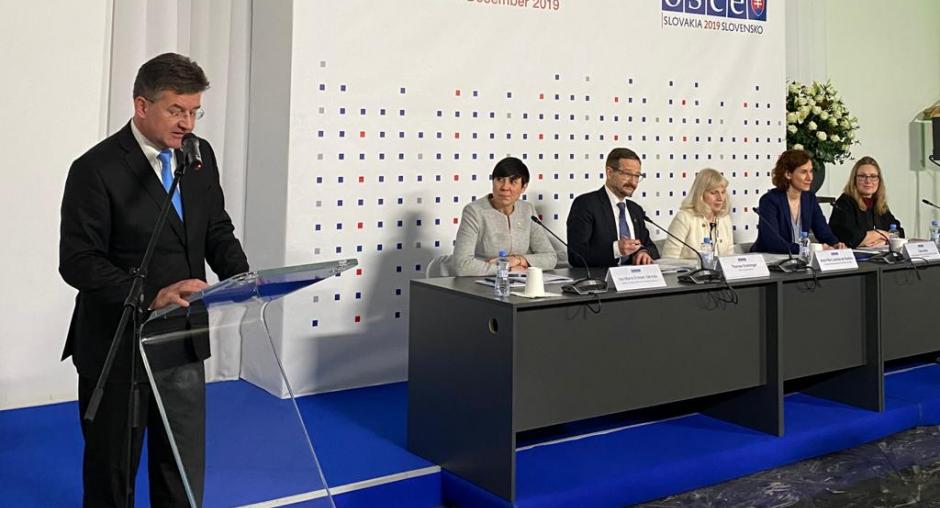OSCE launches Toolkit on Inclusion of Women and Effective Peace Processes

BRATISLAVA, 5 December 2019 – The OSCE launched today a new toolkit focusing on the Inclusion of Women and Effective Peace Processes at the 26th Ministerial Council in Bratislava. The toolkit responds to the need for practical measures to increase women’s inclusion in peace processes in the OSCE area.
Its aim is to support the work of OSCE mediators and their teams, the OSCE Chair, and participating States as well as OSCE field operations, institutions, and the Secretariat.
The launch gave participating States an opportunity to discuss ways to close gaps between the Women, Peace and Security framework and its implementation. Almost 20 years after the UN Security Council adopted resolution 1325, and eight years since the last decision on this issue was adopted by the OSCE Ministerial Council, women’s inclusion in official negotiation processes in the OSCE area remains a challenge. The toolkit is a step towards addressing this challenge.
The OSCE Chairperson-in-Office, Minister of Foreign and European Affairs of the Slovak Republic, Miroslav Lajčák, focused on the need to accelerate the implementation of UN Security Council resolution 1325: “When we take a step back, and look at how peace is brokered today, we are still leaving 50% of society behind. The Toolkit on Inclusion of Women and Effective Peace Processes takes a fresh look at how political processes are happening across the OSCE area. And at how different peace actors are complementing each other’s efforts. But tools cannot use themselves. That’s where we come in; that’s why we need to co-operate, among states, international and regional organizations, and civil society”.
Discussions emphasized the need to integrate a gender perspective in official political and settlement processes. Meaningful inclusion does not merely translate into an increase in the number of women at the table, but also entails stronger linkages between women-led peace initiatives and official negotiations.
Norway’s Minister of Foreign Affairs Ine Eriksen Søreide said: “The inclusion of women in peace processes is not a women’s rights initiative. It is about making the processes more effective and achieving more lasting results. The OSCE toolkit is a means to this end.”
OSCE Secretary General Thomas Greminger noted: “Studies have shown that diversifying voices in decision-making helps us to solve problems more effectively. The inclusion of women in peace processes is an important way to diversify voices. Women have shown themselves to be crucial actors in processes that aim to resolve conflicts and to build peace in post-conflict environments.”
